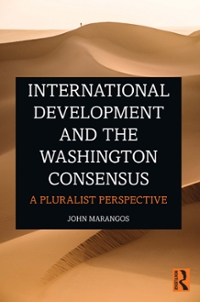Question
This year is the year Facebook transitioned to a pay-to-play model but marketers who think they can jam the news feed with ads will pay
This year is the year Facebook transitioned to a pay-to-play model but marketers who think they can jam the news feed with ads will pay dearly. It's a new chapter in the social marketing playbook and while Facebook leads the charge, other networks will follow with their version of pay to play. From January 2015, Facebook will control the volume of overly promotional posts that users see from brands. Organic posts that solely push people to buy a product or install an app, enter a promotion or re-use the same content from ads will be penalised.Essentially, Facebook is saying that brands need to pay if they want to publish ads. This is being seen as the final nail in the coffin of organic (ie unpaid) distribution Facebook has said that between 1500 and 15,000 potential stories could appear each time someone logs on. News feed filters and controls are in place therefore to show people the content 'that is most relevant to them'. Many commentators are critical of Facebook's tactics. They argue that the company has lured marketers in with a quick hit, got them hooked and then turned off the supply. Others are claiming that Facebook is set to become nothing more than a repository for display ads. These perspectives generate compelling headlines but they're not particularly instructive for marketers who are invested in the platform. The truth is that Facebook has been very clear about its motives. It's not only about revenue, as many assert, it's about the end user experience. They need people to keep coming back, and so do the Australian brands that are so heavily reliant on Facebook as their social marketing channel. Facebook's mission is to "show people the things they want to see". People aren't using Facebook for the ads; they're there for the stories. Paying for reach on any platform has never been a substitute for good content. So while marketing budgets may be ruffled, marketers should remember it's the experience and content that end users seek. The end of organic reach doesn't impact that'
(Source: Excerpt from http://www.brw.com.au/p/marketing/still_relies_play_marketing_social_BcsrL4vMQvEVQ7g19gJB9L, 11 December 2014)
- a) Who do you think is the audience the article and what is its purpose? Explain your answer.
- b) The writer states that other networks will follow in Facebook's footsteps. What types of networks do you think might take on board the pay-to-play model? Why do you think so?
- c) What do you personally think of Facebook's use of ad content?b) The writer states that other networks will follow in Facebook's footsteps. What types of networks do you think might take on board the pay-to-play model? Why do you think so?
- d) What opinion do you think the writer of this article has? Explain your answer.b) The writer states that other networks will follow in Facebook's footsteps. What types of networks do you think might take on board the pay-to-play model? Why do you think so?
Step by Step Solution
There are 3 Steps involved in it
Step: 1

Get Instant Access to Expert-Tailored Solutions
See step-by-step solutions with expert insights and AI powered tools for academic success
Step: 2

Step: 3

Ace Your Homework with AI
Get the answers you need in no time with our AI-driven, step-by-step assistance
Get Started


